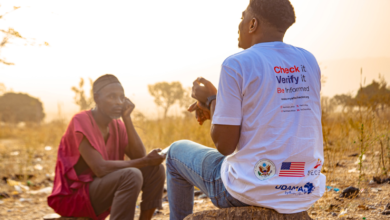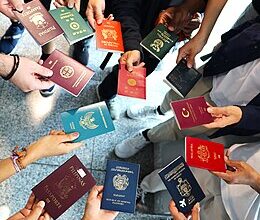FactCheckAfrica Series: UN Calls for Caution as Tech Companies Monetise Contents

By Quadri Yahya
The United Nations has called on tech companies to take precautions as content monetisation on social media platforms widens.
At the recent Global Principles for Information Integrity launch, UN Secretary-General António Guterres noted that AI technologies will potentially worsen widespread misinformation, disinformation and hate speech.
Guterres also added that a threat to information integrity is equivalent to the integrity of elections and social cohesion
“The spread of hatred and lies online is causing grave harm to our world. Misinformation and disinformation fuel prejudice, violence and conflict while compromising the integrity of elections and social cohesion,” he noted.
FactCheckAfrica in an ongoing series has highlighted the consequences of content monetisation on social media platforms like Facebook, X and others in the information ecosystem.
Accordingly, the Secretary-General has charged tech companies to take responsibility for the damage their products are causing and to change business models that profit from disinformation.
While preaching the need for ethical and fact-based journalism to continue to thrive, he also urged advertisers to stop monetizing harmful content.
On its part to check the situation, however, the UN introduced the United Nations Global Principles for Information Integrity as a foundational framework aimed at fostering a humane information ecosystem. The principles, according to Guterres, are essential for sustainable development, climate action, democracy, and peace.
The five principles outlined are societal trust and resilience, independent and pluralistic media, healthy incentives, transparency and research, and public empowerment.
“Science, facts, human rights, public health, and climate action are under attack. When information integrity is targeted, so is democracy.”
Guterres acknowledged freedom of expression and access to diverse information sources, saying “Everyone should be able to express themselves freely without fear of attack. No one should be at the mercy of an algorithm they don’t control.”
Nevertheless, he urged governments to support a free, independent, and pluralistic media landscape, protect journalists, and ensure regulations uphold human rights.
“The UN hears your calls for guidance and support. Demand accountability, demand choice, demand control. Together, we can win this fight.”
The UN’s recent efforts align with FactCheck Africa’s series examining the effectiveness of YouTube and X initiatives to combat misinformation, as well as the organization’s continuous empowerment programme for communities across Nigeria.
Edited By: Habeeb Adisa



